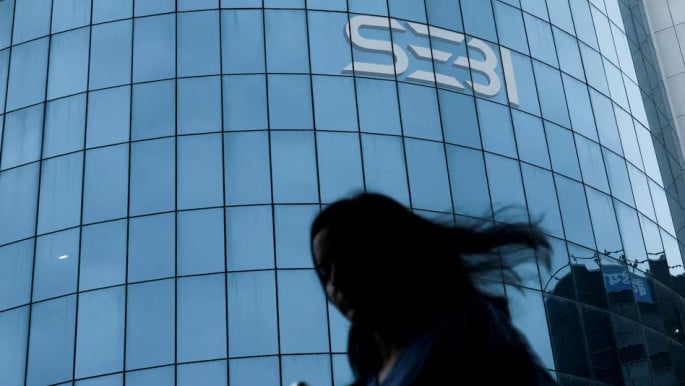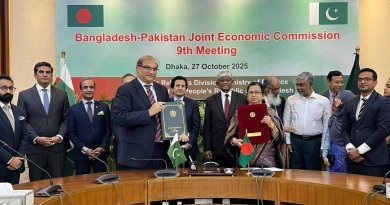Bangladesh, Malaysia Leaders Agree to Deepen Partnership

Putrajaya, 12 August 2025 – Bangladesh Chief Adviser Professor Muhammad Yunus and Malaysian Prime Minister Dato’ Seri Anwar bin Ibrahim held a bilateral meeting at Perdana Putra in Putrajaya on Tuesday, reaffirming their commitment to transform Bangladesh–Malaysia relations into a deeper, future-orientated strategic partnership.
The two leaders first held a one-on-one meeting, preceded by a restricted session with select senior officials. Later, they led delegation-level talks covering a wide range of bilateral issues, including trade, investment, migration, energy cooperation, the blue economy, education, and cultural exchange.
“Our two countries share a deep bond rooted in history, religion, and cultural empathy. Malaysia is a unique partner of Bangladesh, particularly in human resources, trade, and people-to-people contacts,” the Chief Adviser said at the start of the delegation-level talks.
Prime Minister Anwar described Professor Yunus as “a friend of Malaysia” and commended his leadership of Bangladesh’s Interim Government over the past year. He emphasised the need to boost trade and expand cooperation in migrant worker welfare, education, and efforts to resolve the Rohingya crisis.
During the one-on-one meeting, Professor Yunus thanked Malaysia for facilitating the entry of nearly 8,000 stranded Bangladeshi workers under a simplified protocol and for introducing multiple-entry visas, allowing workers to return home during emergencies without risking their jobs.
Both sides underscored the importance of transparent and fair recruitment processes to reduce costs and safeguard worker welfare.
At the delegation-level talks, Adviser on Law, Justice and Overseas Employment Asif Nazrul urged Malaysia to recruit more skilled Bangladeshi professionals, including doctors and engineers, through a government-to-government framework.
He noted that Bangladesh’s state-run BOESL agency is now capable of handling recruitment for Malaysian companies and called for opportunities for Bangladeshi security guards and carers. He also requested for steps to be taken for the regularisation of irregular or undocumented Bangladeshi workers in Malaysia.
Malaysian officials confirmed that Bangladeshi workers will now be entitled to the same social security benefits as Malaysian workers and will be able to lodge complaints in the Bangla language.
Bangladesh also requested “Graduate Pass” visas for thousands of its students in Malaysian universities. Currently, up to 10,000 Bangladeshi students are studying in Malaysia.
The leaders discussed Bangladesh’s aspiration to deepen engagement with ASEAN, including its bid for Sectoral Dialogue Partner status, and sought Malaysia’s support during its ASEAN Chairmanship.
Professor Yunus also invited Malaysia to participate in the upcoming Conference on the Rohingya Crisis in Cox’s Bazar and the UN-led international conference on the Rohingya issue in New York in September. He thanked Malaysia for its consistent support to the Rohingya people.
On economic matters, the two sides agreed to accelerate negotiations on a Bangladesh–Malaysia Free Trade Agreement, strengthen investment cooperation through Special Economic Zones, and operationalise the Malaysia–Bangladesh Joint Business Council.
Highlighting the growing trade imbalance between the two friendly countries, Dhaka sought greater market access for Bangladeshi products such as medicines, batteries, footwear, ceramics and jute in the Malaysian market.
Bangladesh sought Malaysia’s support in developing its Blue Economy and Halal industry, including establishing a Halal Economic Zone outside Dhaka, and expressed interest in joining the Regional Comprehensive Economic Partnership (RCEP).
Both countries welcomed the signing of a new MoU on LNG supply and energy cooperation and agreed to explore renewable energy partnerships. They also discussed collaboration in defence, culture, and tourism. Prime Minister Anwar expressed his admiration for Rabindranath Tagore and proposed a cultural conference on prominent Asian writers and thinkers.
Earlier, Professor Yunus was accorded a red-carpet welcome with a Guard of Honour as he arrived at the Malaysian Prime Minister’s office at Putrajaya.
The leaders witnessed the exchange of several MoUs covering defence cooperation; LNG supply and energy collaboration; cooperation between the Bangladesh Institute of International and Strategic Studies (BIISS) and the Institute of Strategic and International Studies (ISIS) Malaysia; collaboration between the Bangladesh–Malaysia Chamber of Commerce & Industry (BMCCI) and the Malaysian Institute of Microelectronic Systems (MIMOS); and cooperation between FBCCI and NCCIM.
They also exchanged notes on diplomatic training, Halal industry collaboration, and higher education cooperation.
Following the talks, Prime Minister Anwar hosted a luncheon in honour of the Chief Adviser at the official residence of the Malaysian prime minister.
Bangladesh’s delegation included Foreign Adviser Touhid Hossain, Energy Adviser Fouzul Kabir Khan, National Security Adviser Dr Khalilur Rahman, Special Envoy Lutfey Siddiqi, BIDA Executive Chairman Chowdhury Ashik Mahmud Bin Harun, SDG Coordinator Lamiya Morshed and Foreign Secretary Asad Alam Siam.
The Chief Adviser is on a three-day official visit to Malaysia from 11 to 13 August 2025.




